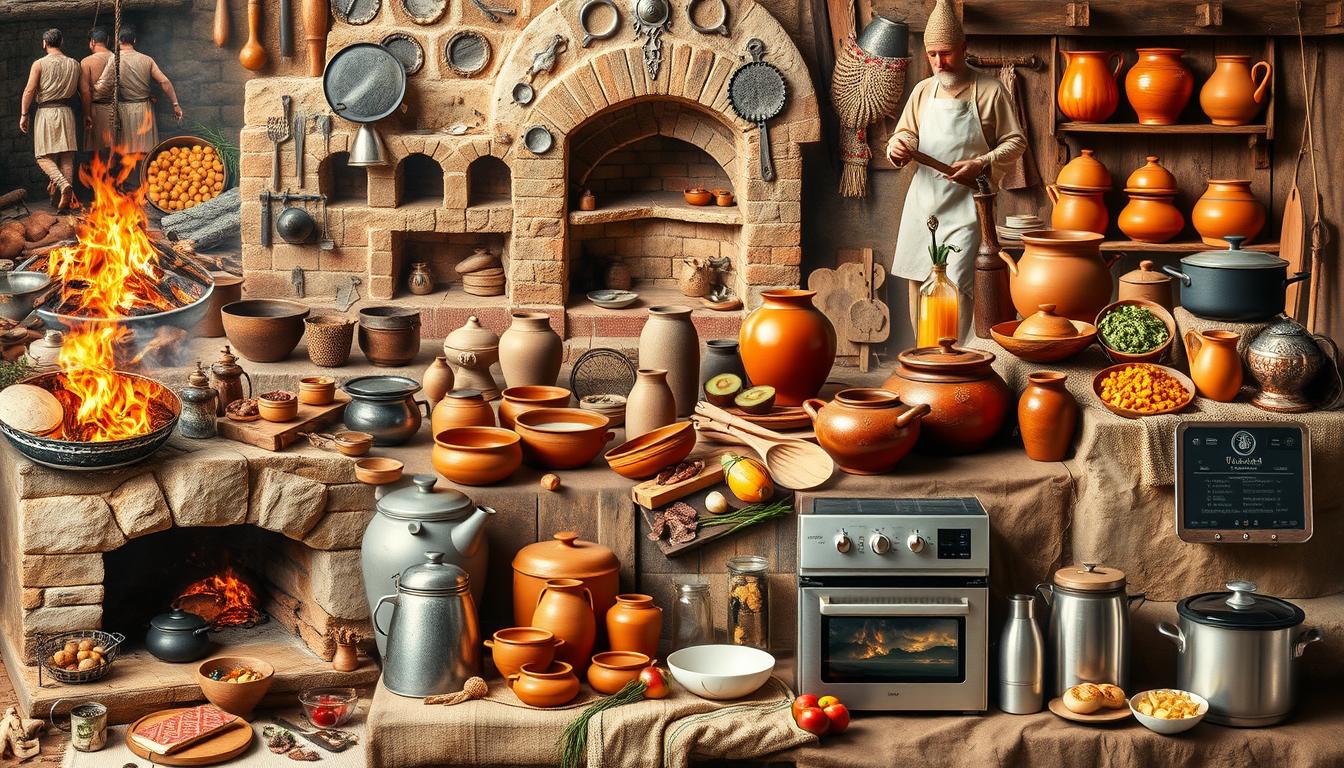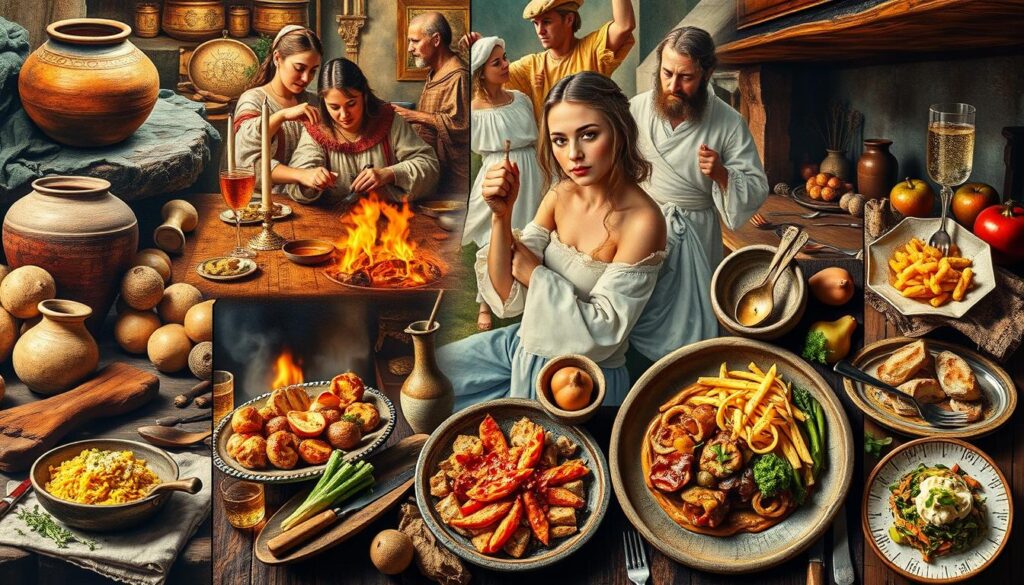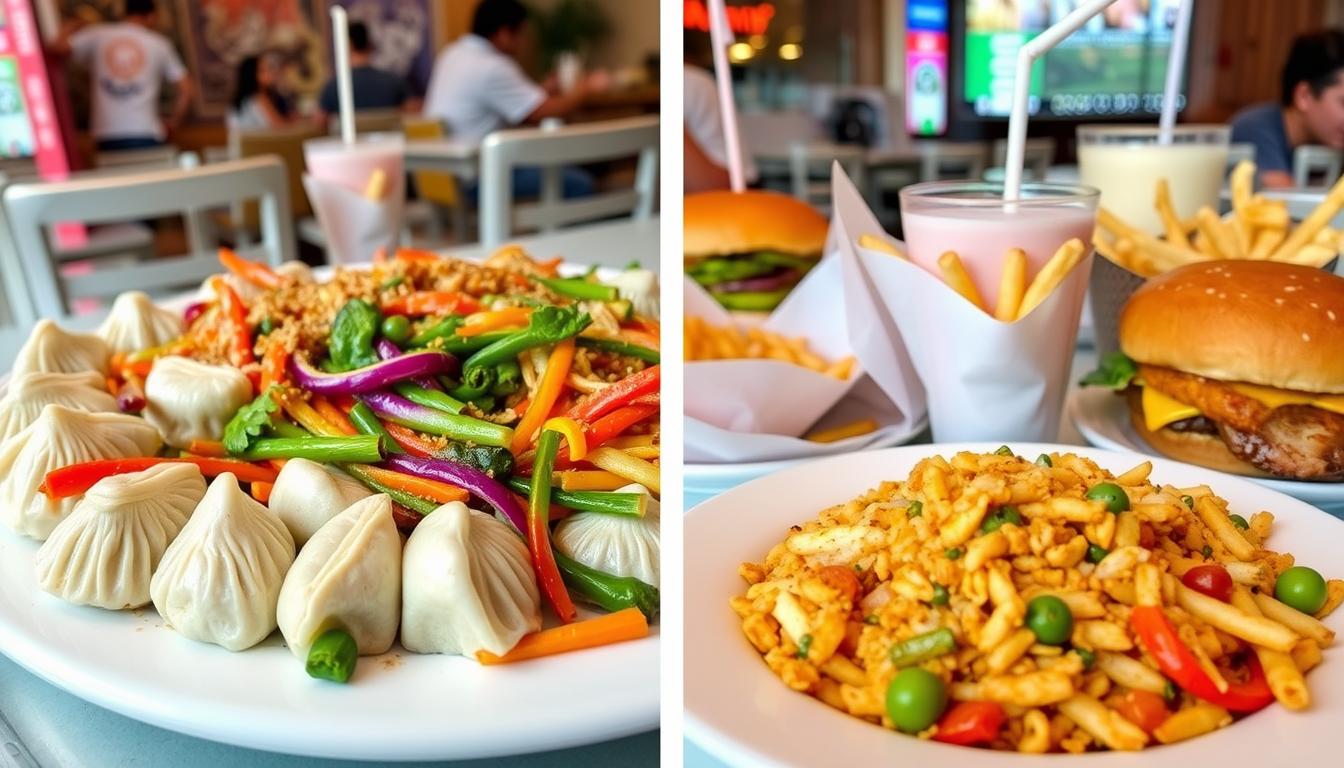The Evolution of Cooking Through History

James Beard once said, “Food is our common ground, a universal experience.” The history of cooking is a long and interesting story. It has been shaped by many things, like historical events, cultural exchange, and new technologies.
From finding fire to using modern cooking methods, how we make and eat food has changed a lot. These changes have greatly influenced the cooking history and culinary arts we enjoy today.
Studying cooking history and the evolution of food is really interesting. It shows how diverse global cuisine is. By looking into cooking history, we learn how different cultures have enriched the culinary arts.
In this article, we will explore the world of cooking history. We will see how food and cooking have evolved from ancient times to today’s methods.
Key Takeaways
- The history of cooking dates back to ancient times, with evidence of cooked foods found in archaeological sites around the world.
- The discovery of fire marked the beginning of a long journey that would shape the culinary arts into what we know today.
- Cultural exchange and technological advancements have played a significant role in the evolution of food and cooking techniques.
- The study of cooking history reveals the diversity of global cuisine and the contributions of different cultures to culinary arts.
- Understanding the evolution of food and cooking techniques can provide valuable insights into the development of modern culinary arts.
- The history of cooking is a fascinating story that spans thousands of years, influencing the cooking history and culinary arts we enjoy today.
Prehistoric Origins of Human Cooking
Fire was discovered around 1.5 million years ago. This event started a new chapter in human history. It allowed early humans to cook their food, changing their diet and health.
The use of fire led to the creation of early cooking tools. People made stone knives and wooden spoons. These tools helped in preparing food, starting a new era in food culture.
- Discovery of fire and its controlled use
- Development of early cooking tools, such as stone knives and wooden spoons
- Expansion of food variety and nutritional intake
Fire and cooking tools were key in human evolution. They helped in the growth of historical cooking techniques. Cooked food also changed human thinking and how they lived together.
The Evolution of Cooking Through History: From Ancient Civilizations to Modern Times
Cooking’s history is rich and varied, spanning thousands of years. From ancient times to today, culinary arts have changed a lot. This change came from cultural exchange, new tech, and big events. The ancient Egyptians, Greeks, and Romans, for example, created advanced cooking techniques. They used special ingredients that only the rich could afford.
New ingredients and food history are key to understanding cooking’s evolution. The introduction of spices, herbs, and other seasonings was influenced by trade and cultural exchange. This shows how different cultures have shaped their food over time.
Some important cooking techniques include:
- Roasting and stewing, which made tough meat edible
- Using spices and herbs to flavor dishes
- Introducing new ingredients like sugar and chocolate from the New World

The history of culinary arts and food history is complex. It shows how culture, tech, and history have shaped cooking. By exploring this history, we can appreciate the variety of global cuisine and the cooking techniques developed over time.
The art of cooking reflects a culture’s history and creativity. Its evolution shows the power of human innovation.
| Civilization | Cooking Techniques | Ingredients |
|---|---|---|
| Ancient Egypt | Roasting, stewing | Grains, vegetables, meats |
| Ancient Greece | Grilling, frying | Olives, grapes, fish |
| Ancient Rome | Boiling, steaming | Meats, vegetables, fruits |
Conclusion: How Historical Cooking Shapes Modern Culinary Arts
Looking back, we see how historical cooking has shaped today’s food world. Studying old cooking methods and ingredients is key. It shows us how history, culture, and tech have changed food over time.
This knowledge inspires chefs and home cooks today. They can make new dishes that honor the past and are fresh for now. This mix of old and new is crucial in the ever-changing world of food.
Learning about historical cooking does more than just teach us about the past. It also guides the future of food. By exploring our shared history, we find new ways to enjoy food. This enriches our lives and our culture.



